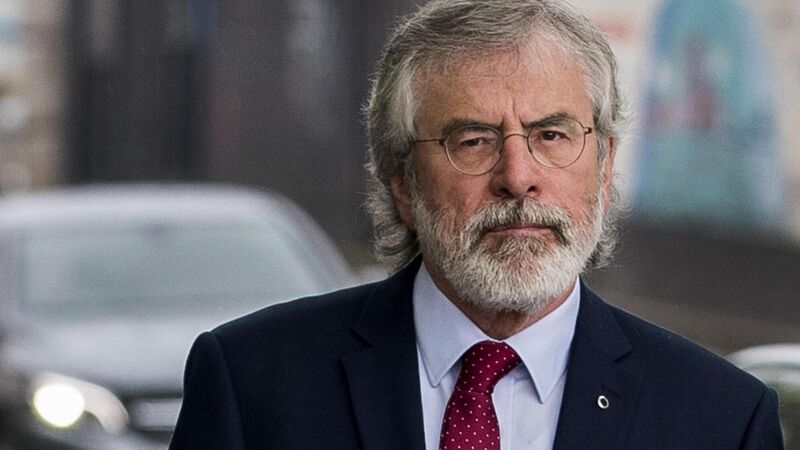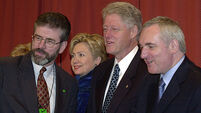State Papers: British were 'apoplectic' at US giving visa waiver to Gerry Adams

Sinn Féin president Gerry Adams was granted the waiver on January 30, 1994, but the visa was “strictly limited” in duration and he was not allowed to travel outside a 25-mile radius of the conference centre.
British officials were “apoplectic” at the decision by the US authorities to grant a visa waiver to Gerry Adams in 1994 but eventually conceded that the move was “beneficial” for the peace process in Northern Ireland.
Confidential Government files record the strong opposition of the British government towards proposals that the Sinn Féin president would be permitted to travel to the US for a conference that year.














